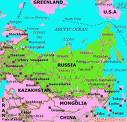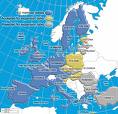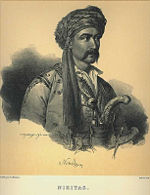
This series is aimed at shedding light over contemporary Russian affairs, as I firmly believe that in order to analyze properly current international relations, one must get a strong historical background.
Part 1 will be dedicated to the foundation of the Russian state, and the process, as we will see, began way before 862. Indeed, a political embryo emerged with the state of Gardaríki, centered in Novgorod, which included the areas inhabited by Votes, Veps and Ilmen Slavs. It was set up by the Varangian chief Rurik in 862, marking the traditional beginning of Russian history. [1]
But before the creation of Gardaríki, many nomad tribes settled the land, and their influence over the early Russian state will be further discussed. Then, Rurik’s successor, Oleg of Novgorod founded Kievan Rus’, the first united East Slavic state. [2] Christianity became the official religion of the state in 988, after extended commercial ties with the Bizantine Empire. [3] This crucial event is considered as the beginning of the synthesis between Byzantine and Slavic cultures, which would define Russian culture until the advent of the

























 Σαν
σήμερα 25/9 εκοιμήθη ο μεγάλος ήρωας της επανάστασης Νικηταράς ο οποίος
παρόλο τους κόπους του και τους αγώνες του πέθανε φτωχός στον Πειραιά
Σαν
σήμερα 25/9 εκοιμήθη ο μεγάλος ήρωας της επανάστασης Νικηταράς ο οποίος
παρόλο τους κόπους του και τους αγώνες του πέθανε φτωχός στον Πειραιά 











